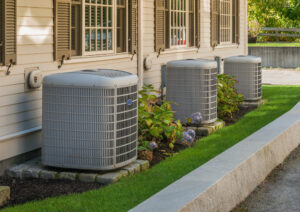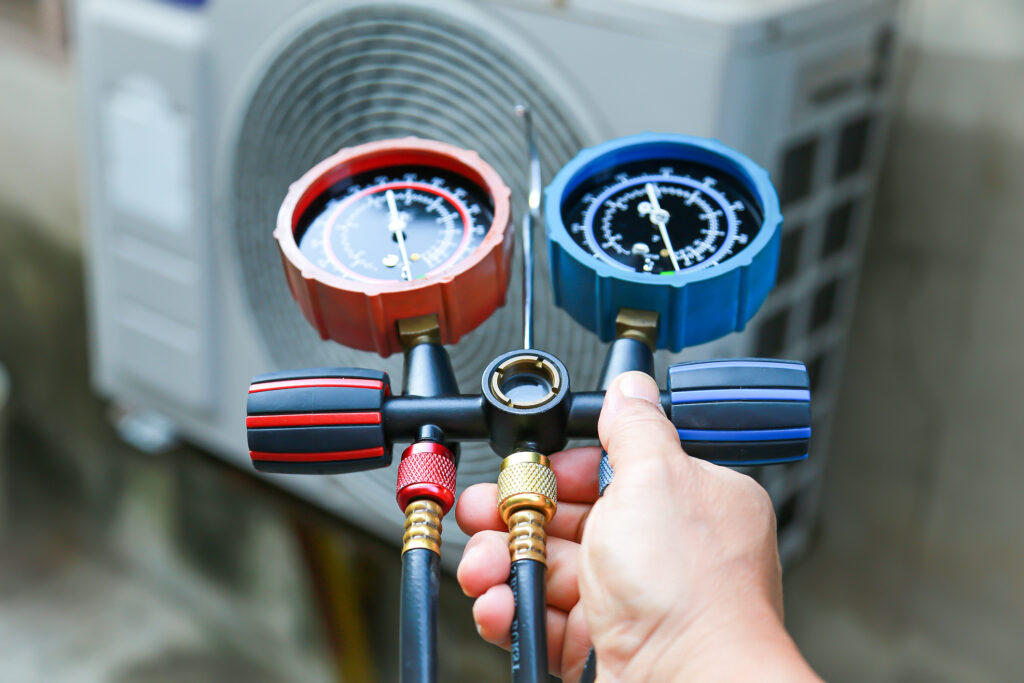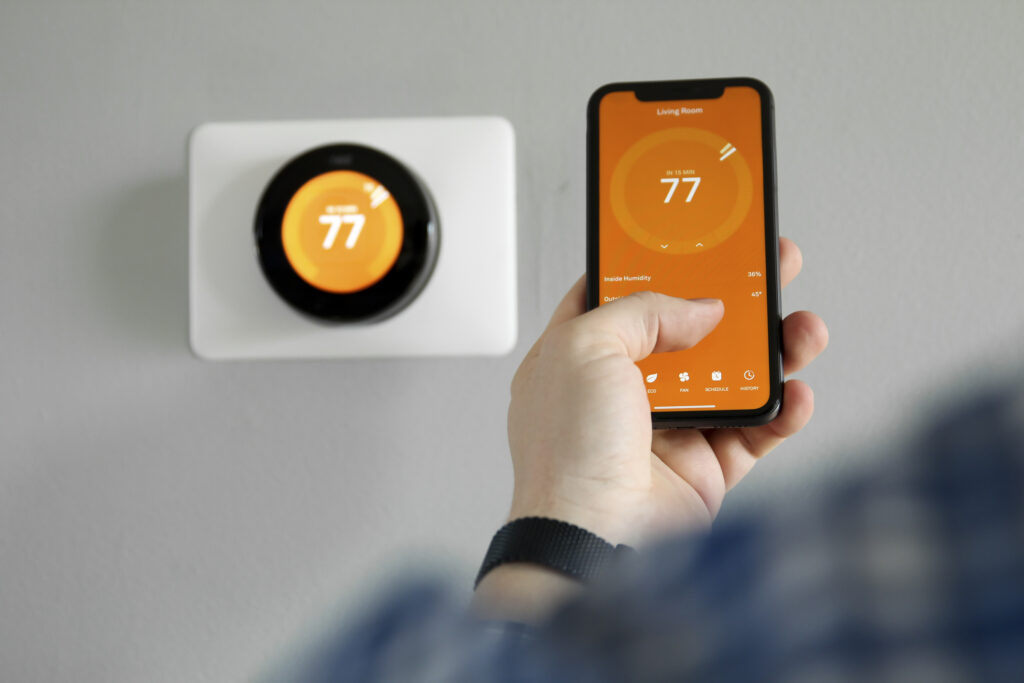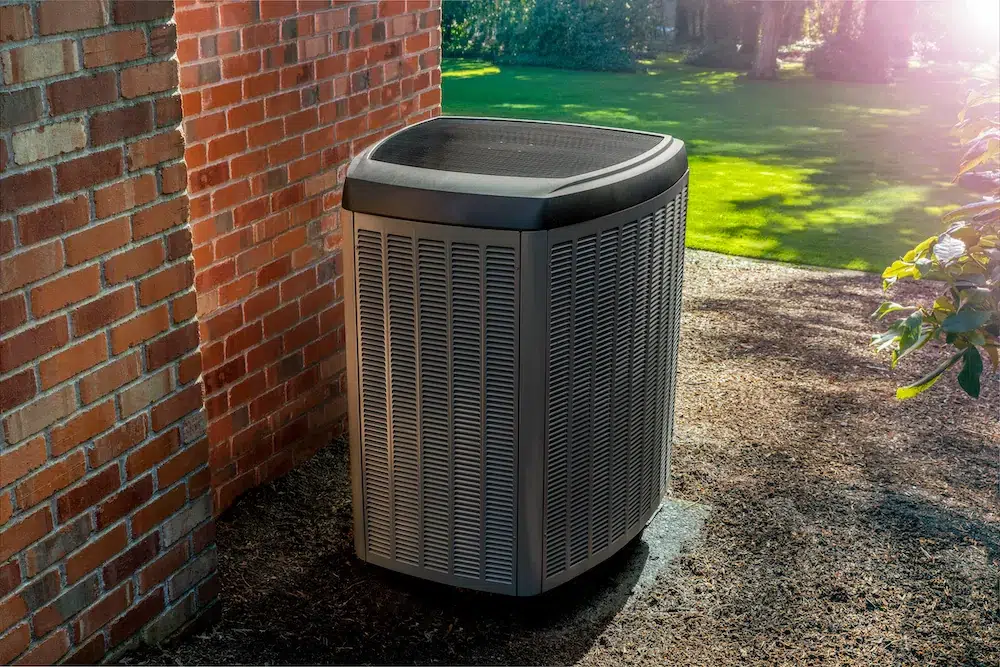A functioning air conditioner is essential when the mercury is soaring. Do you know how to tell if your air conditioner is functioning efficiently? Our team here at Eagle Air can help. We offer routine maintenance, diagnostics, and prompt repair to keep your home cool and comfortable all cooling season long.

Check the Air Vents
First, go to each vent and register in your home to check that they are blowing cool air when your AC is turned on and running. The air moving through them should feel cool. If it is warmer than normal, your air conditioner may be malfunctioning. We can verify that your return vents are drawing air back into your system and that they have ample airflow.
Each vent should be open and have a few feet of clearance around and above it. Some people close vents to avoid cooling rooms that aren’t in use and save some money. Unfortunately, this can cause problems with your AC and may even cause permanent damage.
Measure Temperature Difference
Use a thermometer to compare the temperatures between your supply and return vents. You should see a difference of approximately 15 degrees Fahrenheit to confirm that your air conditioner is working properly. Check the temperature in various rooms. You may be experiencing uneven cooling due to an incorrectly sized unit, ductwork damage, or equipment strain.
Inspect the Thermostat
Test your thermostat settings to confirm that the device is responsive. Turn your thermostat down a few degrees so that your AC turns on. Raising the temperature back up should turn the unit off. We can check your thermostat to confirm that the readings it takes are within one to two degrees. Anything more than that can affect how well your AC cools.
Examine the Outdoor Unit
Check for any debris that has accumulated around your condenser unit. Look for things like leaves, tree branches, and weeds. We can perform an AC inspection and air conditioner maintenance, ensuring that your unit is running and expelling warm air.
Listen for Unusual Noises
Over time, your AC will experience wear and tear, which could result in odd noises like rattling, buzzing, or grinding. These noises can indicate mechanical issues that require us to check your air conditioner’s function.
Observe Water Drainage
Periodically check the condensate drain to ensure proper water flow. Sediment buildup and mineral deposits can prevent water drainage, leading to structural and property damage. Moisture can also promote mold growth and reduce AC efficiency.
Monitor Airflow Consistency
Air flowing across all vents should be consistent. If not, there may be obstructions in your vents or damage to your ductwork. Damage to fan blades or blower problems can also result in weak airflow.
Check for Ice Formation
During the cooling season, you need to inspect your evaporator coils and look for ice buildup. If ice is present, this can restrict airflow and damage your AC system.
Review Your Utility Bills
Keep an eye on your monthly utility bills. If you compare your current energy bill with previous months or years and see a steady increase, this may be the result of AC damage or wear and tear. As air conditioning equipment gets older, it tends to work less efficiently. Routine maintenance can often boost efficiency. We can assist if it’s time to invest in a new AC model.
Scheduling Professional AC Maintenance
We recommend that you schedule an annual inspection with our team at least once per year. Regular servicing can help prevent major breakdowns, so you’re not left without AC in the middle of a heatwave. There are many issues that we can spot that aren’t visible to homeowners. Ignoring these issues can lead to more expensive and involved problems.
Choose Eagle Air for AC Repairs in Livermore, CA
Our team here at Eagle Air is available for routine inspections of your air conditioner system. We can also help with the installation of a new unit, emergency repairs, and much more. If you notice issues like abnormal sounds or smells, or your AC isn’t turning on at all, reach out to our team today to schedule an appointment in the Livermore area so we can check your air conditioner’s function.





